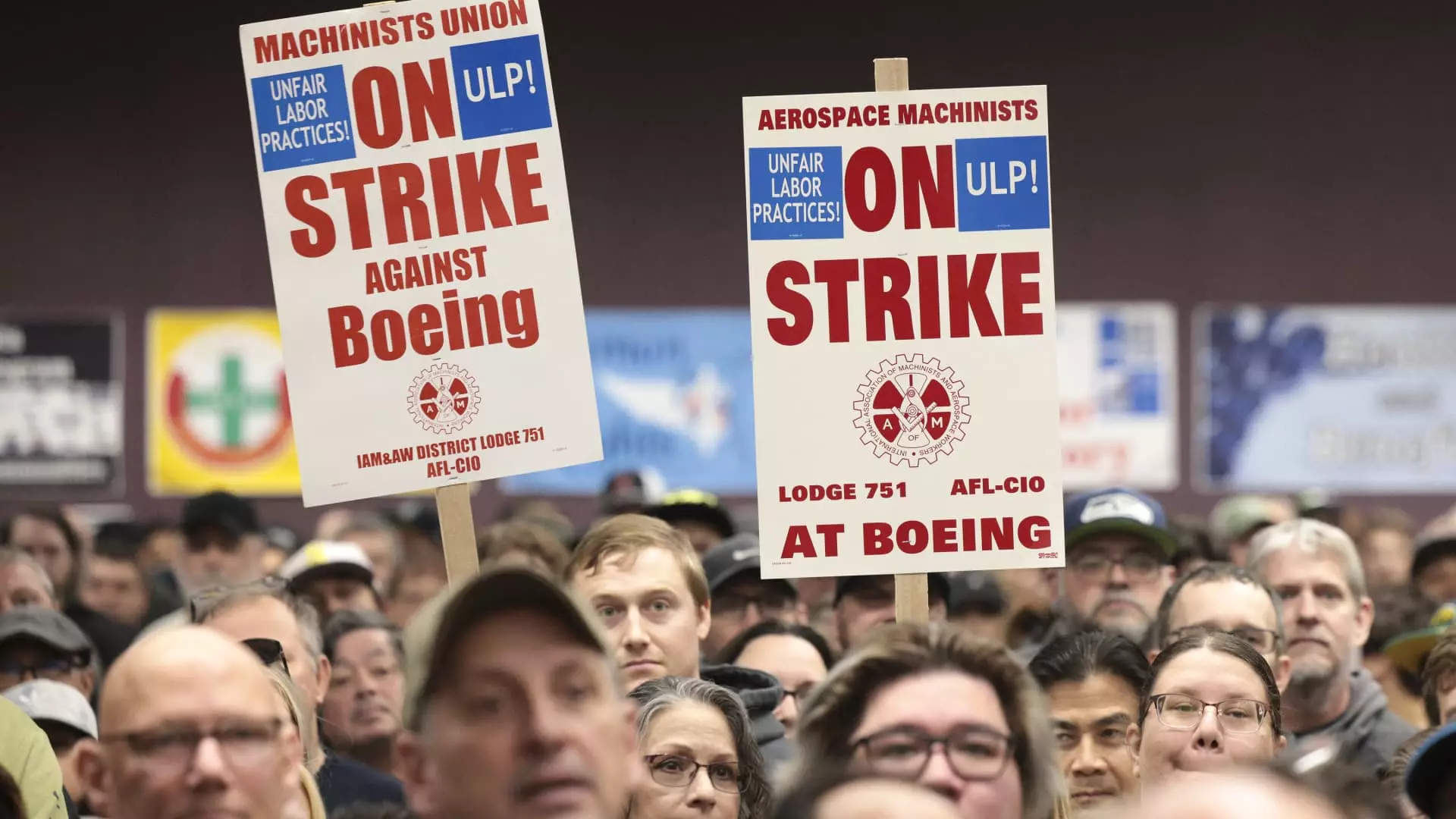Boeing’s ongoing negotiations with its machinists’ union have culminated in a proposed contract that promises to alleviate the month-long strike that has severely impacted aircraft production. Announced by union representatives, the new proposal outlines a series of significant changes intended to address the concerns of over 30,000 machinists. These include a striking 35% wage increase over four years, a one-time signing bonus of $7,000, and enhancements in both bonus programs and 401(k) contributions. The ratification vote set for Wednesday could indeed usher in a new era of collaboration between the company and its workforce, which has been beleaguered by unresolved labor issues.
The intervention of Acting U.S. Secretary of Labor Julie Su is noteworthy, reflecting the broader implications of this labor dispute. By facilitating dialogue between the two parties, Su has played a pivotal role in the proposed resolution. The International Association of Machinists and Aerospace Workers District 751 expressed cautious optimism about the negotiated terms, indicating that while the contract merits consideration, the members must ultimately decide its fate. This level of government involvement underscores the significance of the strike—not merely for Boeing but for the aviation sector at large.
The context in which these negotiations are taking place is particularly precarious for Boeing. The company is grappling with a financial crisis exacerbated by a serious safety incident involving its 737 Max aircraft at the beginning of the year. Moreover, the recent announcement of expected losses nearing $5 billion further compounds the urgency for a resolution. The strike has not only hindered production but has threatened to escalate Boeing’s existing challenges in both its commercial and defense units. For a company reeling from setbacks, a ratified contract could signal a turning point, allowing it to focus on recovery and future opportunities rather than ongoing labor strife.
Compounding the complexities of this situation is the recent leadership transition at Boeing. CEO Kelly Ortberg has stepped into the role during a turbulent period, inheriting not just the immediate challenges of the strike, but also a legacy of questions about the company’s strategic direction. His announcement of a workforce reduction plan, stating that 10% of jobs would be cut, highlights a drastic measure aimed at stabilizing Boeing’s operational efficacy. Additionally, the decision to halt 767 production by 2027 indicates a shift in focus toward more sustainable and profitable aircraft lines.
Should the new contract be ratified, Boeing stands at a critical juncture. The proposed terms could lead to improved worker morale and productivity, essential for enhancing manufacturing capabilities. However, the company’s path to recovery remains fraught with uncertainties. A ratified agreement also places immense pressure on Ortberg to swiftly implement changes that will not only heal the workforce’s grievances but will also restore substantial investor confidence. As the voting date approaches, the outcome remains pivotal, not just for Boeing’s employees but for the industry’s overall landscape.

Leave a Reply